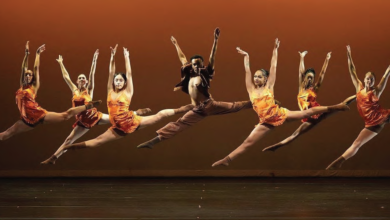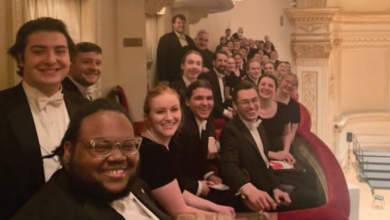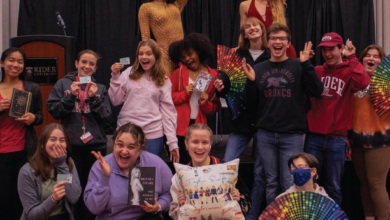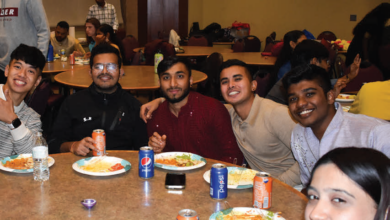
Mother and daughter opt to partake in clinical trial for COVID-19
By Stephen Neukam
Katy Timari labored down the steps of her home in Somerset, New Jersey. She felt nauseous, sore and weak — telltale signs of infection that had become all too alarming since the start of the coronavirus pandemic.
Thankfully, Timari, a 20-year-old sophomore health care policy major, wasn’t ill with the virus. She was reeling from the effects of her participation in a clinical trial for a vaccine, just a day removed from receiving the first dose of Pfizer’s two-shot remedy.
In October, Timari put her name on lists for a number of companies that were barreling forward with their vaccine trials. Just four hours later, she heard back from one of the world’s wealthiest pharmaceutical companies, one that was displaying some of the most promise in developing protection against the virus. In a rush, she was involved in one of the country’s most aggressive and consequential public health pushes ever.
Timari wasn’t the only one in her house that entered the trial. She had been trying to convince her mother, Janet Timari, 50, to also get involved. After some research and some faith in her daughter, Janet Timari was signed up to get a shot.
Blind trial
In October, Pfizer was in stage three of its trial, the last step before the Food and Drug Administration could authorize the vaccine for emergency production.
This meant the mother and daughter duo were under a blind trial, with each of them receiving shots but not knowing whether either got the vaccine or a saline placebo.
As Katy Timari hobbled down her steps, both she and her mother were convinced she had received the vaccine — possible side effects of the shot were some of the symptoms Katy Timari was showing.
“I was like, I had the vaccine, there’s no way I didn’t have it,” said Katy Timari.
Janet Timari was fine, and they both assumed she had the placebo.
“That night [after the shot] she was feeling miserable. I was like, I bet you’re the one who got vaccinated. [She’s a] young college student and they were probably really excited to have that age group represented,” said Janet Timari. “When it was my turn, I felt nothing … I came home and I felt fine.”
Taking control of a pandemic
Katy Timari had followed the government response to the pandemic for months. On top of her health care policy major, she also studies political science. While she and her family took pains to protect themselves from infection, she watched as the country struggled to cope.
“The partisanship in government right now has completely almost halted the ability to get anything done in a timely manner, even when it’s objectively not a partisan issue — I don’t think a disease or a pandemic or any of the issues surrounding COVID [-19] are partisan issues,” said Katy Timari. “Fact [and science] became a matter of debate, and it’s been really unhealthy for the system.”
While millions around the country lost their livelihoods because of the fallout, Janet Timari, who works in the public school system, said her family was lucky enough to not lose any employment.
However, as most other people felt, the effects of the pandemic restrictions were isolating. After being initially reluctant to enter the trials, Janet Timari found a sense of power and purpose in taking an active role in finding a solution to the disease.
“We had spent months just being afraid and in our homes,” said Janet Timari. “I got on board to support [Katy], and maybe to take a little bit of control for myself. You walk around being nervous for so long that it felt good to say, ‘I’m doing something to try to make it better.’”
Placebo effect
As the trial drew to a close, it was time for the company to “unblind” participants and let them know if they received the vaccine or the saline placebo.
Janet Timari got her call first. After weeks of being convinced she was not vaccinated, the voice on the other line gave her the news — she had received the vaccine. She was good to go.
Janet Timari double-checked that the company wasn’t mistaking her for her daughter. Sure enough, Janet Timari was now vaccinated against COVID-19.
“They had to read me my secret code and my information to convince me because I was so certain that I was in the placebo group,” said Janet Timari.
Katy Timari was still convinced she had the vaccine. When her call came, she was shocked that she was in the placebo group.
“I had completely fallen for it,” said Katy Timari. “When I ended up getting the actual vaccine in February, I had symptoms, and they felt just like the placebo symptoms, which is pretty funny.”
A way forward
As of February, the U.S. government has purchased 300 million doses of the Pfizer vaccine that both Katy and Janet Timari were part of the trial for. As the country attempts to distribute the vaccine as quickly as possible, Katy Timari appreciates that she was able to take part in a historic moment in public health.
“I was excited to help the results move forward pretty quickly,” said Katy Timari.
Katy Timari’s father, a part-time firefighter, was also able to be vaccinated since the end of the trials.
Katy Timari moved back to campus for the spring semester after spending the fall at home. While she is vaccinated, she stressed that students at the university need to continue to take the pandemic seriously and not compromise health protocols while vaccines are being distributed.
“A lot of students, now that they are back at college, are starting to take things a little bit more relaxed than they would at home,” said Katy Timari. “There is still a variation that can happen with the spread and that is really worrying me, especially at college. It is really important that people take this in stride.”
For Janet Timari, her experience in the trial and the pandemic has renewed her belief in the importance of health care and public policy and her daughter’s future in shaping those fields.
“It is just so critical that we’re aware and able to manage and control these situations,” said Janet Timari. “I know [Katy] is also focused on equitable health care in this country, so I definitely think that this pandemic has raised awareness for the field that she’s going in.”



